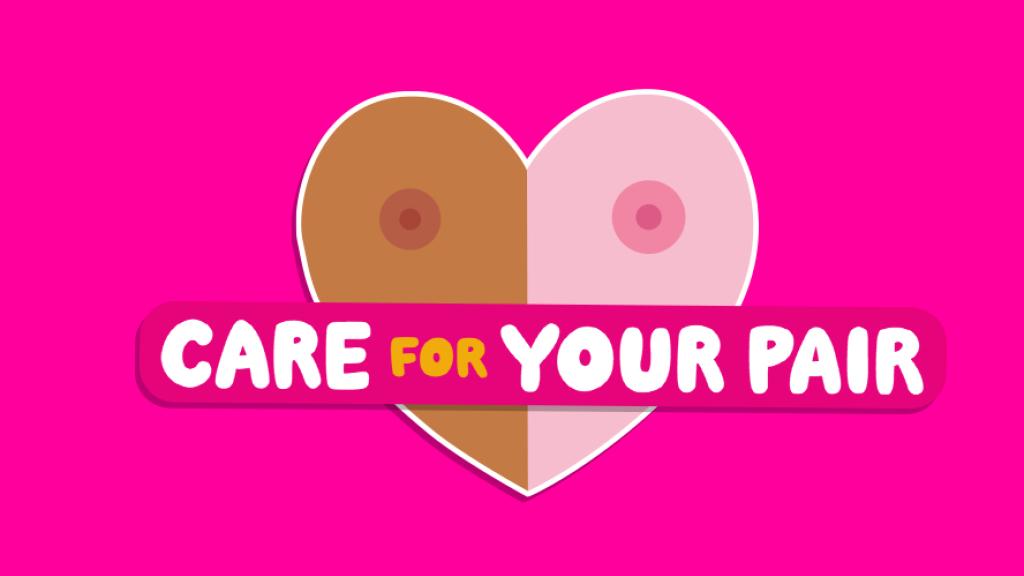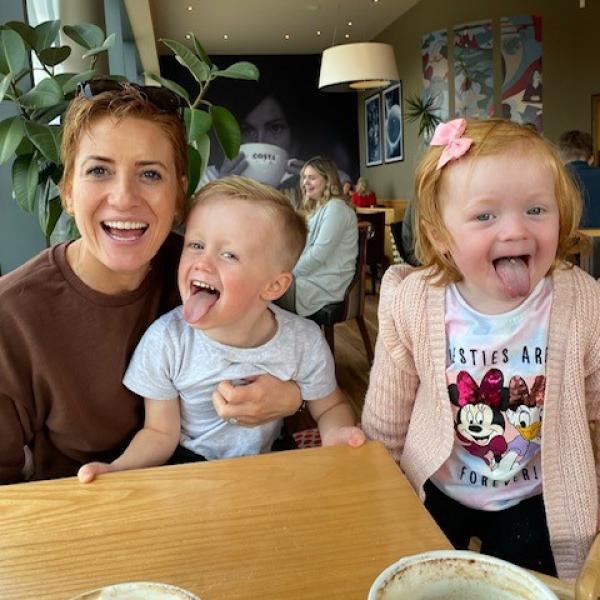

When her mother was diagnosed with ovarian cancer 15 years ago, Julie Kearney was only vaguely aware of the genetic link between different forms of cancer and the strong family line affected– a link that would eventually have implications in her own life.
In Julie’s case, it was through the good fortune of having a doctor who took an interest in her health and was always aware of her family history that she became aware of her own cancer risk.
“I have a really good doctor who was really interested to know about how my mum was getting on post-cancer. One day she told me that she thought I should really get tested given the family history. I didn’t have any issues in my mind that warranted it, but she put me forward for it,” recalls the mum-of-two from Kildare.
It was nearly two years later 2019 when Julie received the result of her genetic testing, by which time she had already moved on from it in her own mind and was expecting her second child.
Julie was told she had inherited the high-risk BRCA 1 mutation gene, which is associated with breast and ovarian cancers.
“By this time I had actually forgotten about it. I wasn’t that worried and didn’t really understand it to be honest, so I kind of put it away until I needed to.
“Then a year later the hospital contacted me to bring me in for a family history chat. That was pleasant, but we went into so much detail then that I actually kind of got overwhelmed.”
It was recommended that Julie undergo surgery to reduce her risk of a future cancer diagnosis.
“I had my two babies by that point and I remember thinking that you would only do it if you were fairly certain that you had had all your kids already. I was going to the do the preventative surgery at some stage, first breast then ovary, but I probably would have dragged it out and said ‘maybe next year, maybe next year’.”
In the meantime, the appointments came and tests were carried out including an annual mammogram and MRI.
As part of the investigative process a lump was detected in Julie’s breast which would require surgery to be removed as soon as possible.
“I was very shocked. It was also in the middle of the Covid lockdowns. They can tell you all the statistics in the world , but it’s only when you’re told ‘you have a lump, it’s not in your nodes yet, you need to do this’ that it all clicks and the previous appointment made more sense,” recalls Julie, who says that up to that point she had been living in the hope that she would ultimately remain unaffected by cancer.
“I had no symptoms, which for me was really scary because I might still be living my life as normal now not knowing it was there. I would have got bigger and maybe traveled into my nodes.
“I would just dread to think of the options that I wouldn’t have if It was left any later. Finding out I had the gene was like opening a can of worms, but for this I am so grateful.”
After having chemotherapy and a number of procedures Julie says she has done all she can for now to protect herself and is now starting to feel that life is returning to normal for her.
Her younger sister is currently going through the preventative treatment process, and Julie feels her own experiences have shown the benefit of acting early.
“There isn’t enough advice about the BRCA gene, early screening and prevention because most people only go for testing when they’re symptomatic, especially given I was 36.
“I didn’t mess about, my lump was found soon into my screening. But back when I was sat down and told I had the BRCA gene, if they actually told me all of this was going be happening to me within the next year I wouldn’t have delayed and would have told them do what they needed to do as soon as possible.”
While praising her medical team and the staff in Beaumont Hospital Julie says she felt somewhat lost after her treatment ended, and found great solace in counselling support from ARC, and from the Marie Keating Foundation.
She’s now a firm advocate for taking action, having risk investigated and getting symptoms seen to.
“It’s made a lot of my friends talk more about it and check themselves.
I do feel safe in my current screening process but can’t help thinking of those who are unaware they have this gene due to lack of knowledge or support that could benefit or prevent future cancer diagnosis.”
Julie is delighted to be supporting the Irish Cancer Society's Care For Your Pair campaign for Breast Cancer Awareness Month. To learn more about the campaign, visit: cancer.ie/careforyourpair #CareForYourPair
Host a Big Pink Breakfast
Host a Big Pink Breakfast this October to support breast cancer patients and their families across Ireland.
Find out more at: Cancer.ie/CareForYourPair

